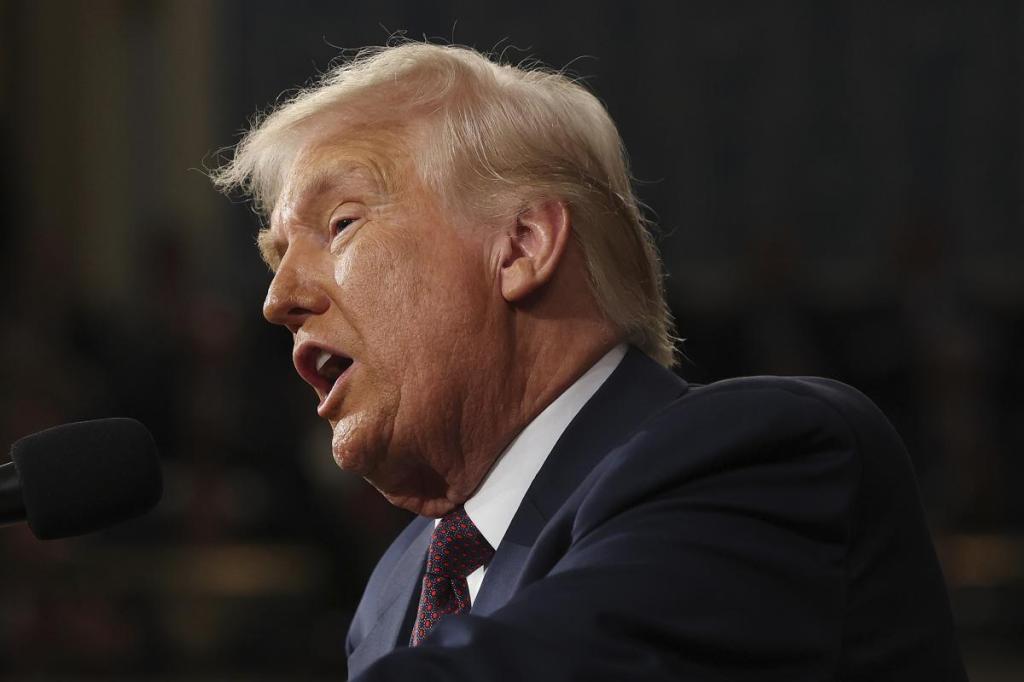Elon Musk's Bold Ultimatum to Federal Employees Sparks Debate
Elon Musk's demands for federal employees challenge government efficiency, raising concerns about morale, legal issues, and the future of public service.

Key Points
- Elon Musk
's ultimatum to federal employees demands performance justification, sparking confusion and concern over his authority.
- The abrupt shift back to in-office work raises significant morale issues among employees still adjusting post-pandemic.
- Legal challenges against Musk's directive highlight the tension between efficiency initiatives and the rights of federal workers.
In a bold and controversial move, billionaire entrepreneur Elon Musk has stirred significant debate regarding federal employment policies. His recent demands to federal employees, which included threats of resignation for noncompliance, have not only raised eyebrows but also shed light on the complexities of governmental operations during a transformative period.

The Context Behind Musk's Demands
Musk's ultimatum stemmed from an email he sent to federal workers requiring them to justify their roles by summarizing their achievements. He framed this as an opportunity for those who were allegedly underperforming to either demonstrate their value or face dismissal. His aggressive stance emerged shortly after former President Trump tasked him with streamlining government spending and efficiency.
This directive ignited confusion across various federal agencies. For instance, the
(OPM) soon advised employees to ignore Musk’s email, leading to an inconsistency in communications that left many federal workers uncertain of their obligations. The mixed messages emphasized the lack of clarity surrounding Musk's authority and the chaotic dynamics within the federal workforce.

The Impact on Federal Workforce Morale
With the administration still navigating a post-pandemic workforce landscape, Musk's demands have further complicated the situation. Many federal employees, who have transitioned to remote work since the
, suddenly found themselves facing a mandatory return to the office. This shift has raised important questions about employee well-being and morale, as individuals grapple with unforeseen changes in their work environments.
Moreover, Musk’s continuation of his demands despite pushback from various departments underscores a wider philosophical divide on the approach to workforce management. Some federal leaders have openly criticized Musk's methods, arguing that his tactics lacked compassion and consideration for the unique challenges faced by public servants. “These are real people with real lives, mortgages, and families”, remarked Senator John Curtis, highlighting the human aspect often forgotten in such sweeping reforms.

Legal Challenges and Resistance
The legal ramifications of Musk's directives have also come under scrutiny. A lawsuit brought forth by labor advocates claims that his demands violate federal employment regulations. They argue that never before have federal employees been compelled to submit performance reports to the OPM in such a manner, characterizing Musk's threat of mass termination as unprecedented and unjust.
As the situation evolves, the contention between federal agencies and Musk reflects a critical intersection of management philosophy and the inherent challenges of public administration. Democratic values, labor rights, and the overarching need for efficiency in government operations are colliding in a way that could redefine the landscape of federal employment.
A Fresh Perspective on Government Efficiency
While Streamlining efforts are essential in an era of constrained budgets, the approach must balance efficiency with empathy and consideration for the workers involved. As Musk's directives exemplify, there is a fine line between motivating a workforce and fostering a culture of fear and compliance. A more sustainable solution would involve engaging employees in the discussion about efficiency, their needs, and how to optimize government operations without compromising the dignity of those who serve.
Engaging teams in constructive dialogue can lead to more innovative solutions where teamwork is encouraged rather than discouraged. By valuing contributions and recognizing the human element behind public service, leaders like Musk could foster a more responsive and effective government workforce.
Ultimately, the developments surrounding Musk's ultimatum to federal employees spotlight a critical moment in the ongoing discourse about government management practices. As we move forward, it is vital to prioritize a balanced approach that not only seeks efficiency but also nurtures the very foundations of public service.


